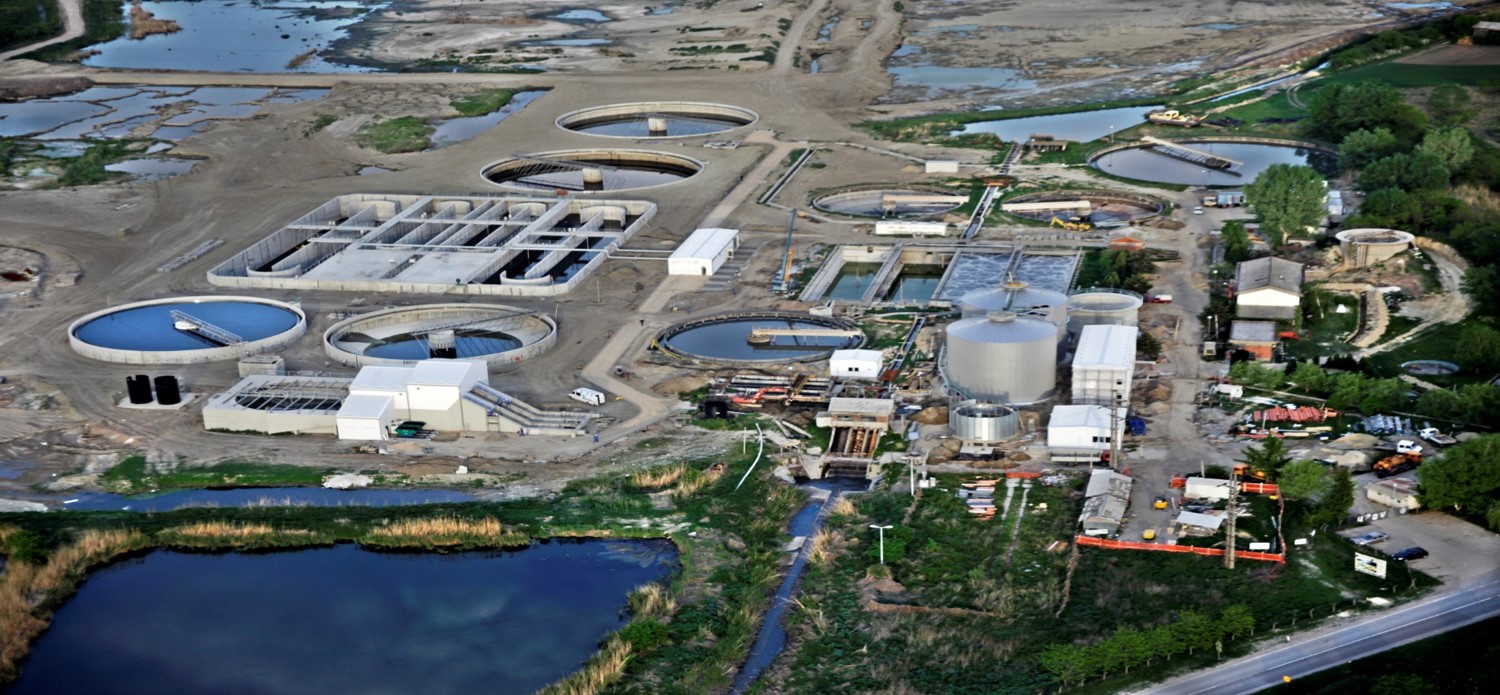
Turning the tide for a cleaner and healthier Skopje
The project, which is expected to be operational by 2028, is not only a step forward for environmental sustainability in North Macedonia but also an important milestone in the country’s path toward EU integration.
About

Challenges:
There are a few challenges the project aims to tackle:
- The Vardar River, which flows through Skopje and into Greece, has been heavily polluted due to untreated wastewater being discharged directly into the river. This pollution has degraded the water quality, impacting aquatic life and posing risks to public health.
- The lack of proper wastewater treatment has led to significant environmental concerns, including the contamination of natural water resources and the surrounding ecosystem. This has implications for biodiversity and the overall health of the environment.
- The untreated wastewater contributes to the spread of waterborne diseases and other health hazards, especially in areas close to the river and where communities rely on water sources potentially affected by the pollution.
- North Macedonia is working towards EU integration, and its current wastewater management practices do not meet the stringent environmental and public health standards required by the European Union. This project addresses the gap in compliance with EU directives, particularly the Urban Wastewater Treatment Directive.
Solutions
The construction of a centralized wastewater treatment plant will present numerous solutions to current challenges:
The project includes building a large, state-of-the-art wastewater treatment facility that willl incorporate both primary and secondary treatment processes. Primary treatment will remove large solids and organic matter from the wastewater, while secondary treatment will further purify the water by breaking down organic pollutants and reducing nutrient levels, such as nitrogen and phosphorus, which contribute to water pollution.
An integral part of the project is the establishment of a sludge management system. This system will handle the by-products of the wastewater treatment process, ensuring that sludge is properly treated and disposed of, thus preventing further environmental contamination.
The project is specifically designed to meet the requirements of the Urban Wastewater Treatment Directive, which sets strict standards for the treatment and discharge of urban wastewater. This includes reducing the load of pollutants entering water bodies, thereby improving the overall quality of the Vardar River .
Impacts
- The initiative is expected to be operational by 2028 and will service nine of the ten municipalities of the Skopje metropolitan area.
- Once completed, the plant will service approximately 540,000 residents*, treating and purifying about 90% of Skopje’s wastewater. This will significantly reduce the pollution levels in the Vardar River, aligning with EU environmental standards, particularly those concerning urban wastewater treatment.
- Alongside the physical construction, the project includes significant technical assistance to enhance local capacities in managing and operating the wastewater treatment plant. This includes training for personnel and the establishment of robust management systems to ensure the long-term sustainability of the facility .
*There is some variation in the reported number of residents who will benefit from the Skopje Wastewater Treatment Project. Most sources, including key reports from the European Investment Bank (EIB) and other involved institutions, cite that approximately 540,000 residents will benefit from the project. However, some sources indicate that the project will serve around 625,000 residents, which might include a broader estimate that extend beyond the immediate urban area of Skopje or account for future population growth.
